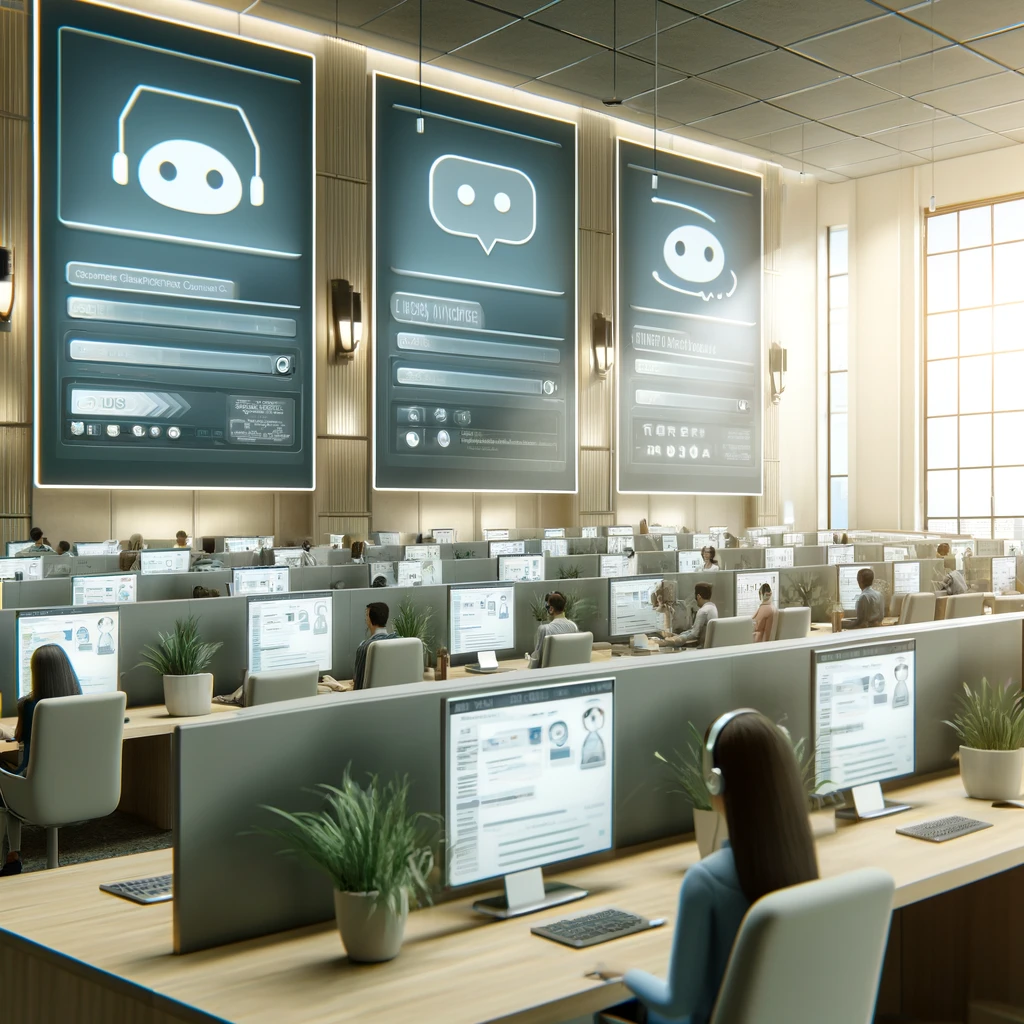List of Top AI Chatbot Development Platforms with NLP for Improved Customer Service

Strong 8k brings an ultra-HD IPTV experience to your living room and your pocket.
Introduction
In the fast-paced digital world, exceptional customer service is a key differentiator for businesses. Chatbots, powered by Natural Language Processing (NLP), are at the forefront of revolutionizing how businesses interact with customers, offering instant, 24/7 support. This article explores the best chatbot platforms that utilize NLP to enhance customer service efficiency.
Understanding Chatbot Platforms
A chatbot platform facilitates the creation and integration of interactive agents — chatbots — that can simulate human conversations. NLP, a subset of artificial intelligence, enables these chatbots to understand and respond to human language naturally. When selecting a chatbot platform, it’s essential to consider NLP capabilities, ease of integration, user interface, and scalability.
Top 10 Chatbot Platforms for Customer Service
Dialogflow (Google)
Dialogflow provides extensive NLP capabilities that support multiple languages, making it ideal for global customer service strategies. It integrates seamlessly with Google's services and third-party applications, enhancing its adaptability.
IBM Watson Assistant
Known for its robust AI and NLP technologies, IBM Watson Assistant allows for highly customized chatbot responses. It excels in understanding nuances in language and intent, significantly improving customer interaction quality.
Microsoft Bot Framework
This platform offers comprehensive development tools for building and deploying intelligent bots. With Azure’s Cognitive Services, bots can understand and process human language more effectively.
Amazon Lex
Amazon Lex benefits from the same NLP technology that powers Alexa. It provides easy-to-use features for creating conversational interfaces that can interpret the user's intent, making it a strong choice for voice and text interactions.
Rasa
As an open-source platform, Rasa is perfect for developers wanting full control over their chatbot’s capabilities and training data. It’s highly suitable for enterprises that prioritize data security and custom solutions.
LivePerson
LivePerson transforms customer care from voice to digital, with AI-powered messaging and automation. Its NLP capabilities are designed to improve engagement strategies across multiple channels.
Nuance
Nuance delivers intelligent self-service solutions with a focus on voice and natural language understanding. Its chatbots can engage customers with personalized conversations that drive satisfaction.
Chatfuel
Primarily used on Facebook Messenger, Chatfuel allows businesses to build chatbots without coding knowledge. It supports NLP via integration with Google’s Dialogflow, catering to social media-savvy customers.
Ada
Ada specializes in AI-driven customer service automation. With its robust analytics and NLP, it provides personalized customer experiences, reducing the need for human intervention.
Intercom
Known for its business messaging system, Intercom integrates AI and bots to automate customer interactions. Its machine learning model improves with every interaction, enhancing its understanding over time.
Comparing Chatbot Platforms
To choose the right platform, businesses should consider:
NLP accuracy and language support: Essential for handling diverse customer bases.
Integration capabilities: Integration with CRM systems and data analytics tools is crucial.
Cost-effectiveness: Consider both initial setup costs and ongoing operational costs.
The Role of Custom and AI Development Companies
Custom chatbot development companies and AI development companies play a crucial role in tailoring solutions to specific business needs. These entities provide the expertise needed to develop sophisticated chatbots that leverage advanced NLP to interpret and understand customer queries more effectively.
Case Studies
Case Study 1 : A retail company implemented an AI chatbot using IBM Watson and saw a 50% reduction in customer wait times and a 40% increase in customer satisfaction.
Case Study 2 : A telecom operator introduced a chatbot via LivePerson, leading to a 60% decrease in call volumes and a significant boost in resolution rates.
Future Trends in Chatbot Development
The future of chatbots involves more advanced AI capabilities, including predictive analytics and emotional intelligence, enabling chatbots to anticipate customer needs and respond to emotional cues.
Conclusion
Choosing the right chatbot platform with effective NLP capabilities is vital for enhancing customer service. Businesses should consider platforms that offer robust NLP features, scalability, and integration options.
Note: IndiBlogHub features both user-submitted and editorial content. We do not verify third-party contributions. Read our Disclaimer and Privacy Policyfor details.


